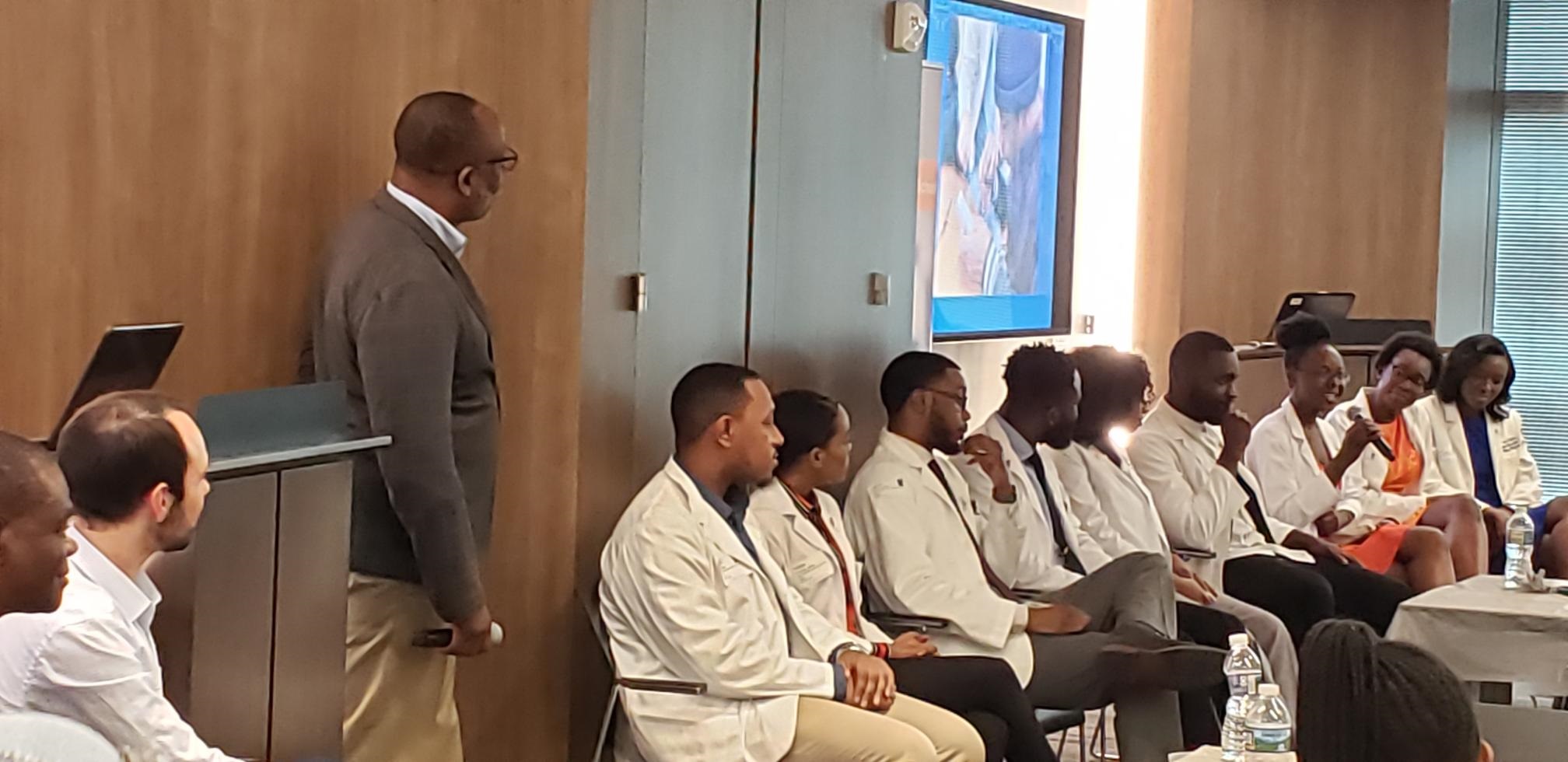Health Equity

News, Statements, and Testimony on Health Equity Issues
25th Council session information coming soon.
MSDC Endorsed CPR Bill Passes Council
At its October 15 legislative meeting, the DC Council passed legislation endorsed by MSDC to save lives and protect children from sudden health emergencies.
B25-570, the Cardiac Planning and Response (CPR) Amendment Act amends the Public Access to Automated External Defibrillator Act of 2000 to define the term cardiac emergency response plan and require schools to establish cardiac emergency response plans. MSDC joined a diverse coalition of public health organizations to promote the bill, which we expect will make it easier to respond quickly when someone has a cardiac emergency at school or on an athletic field.
Below is the testimony Dr. Ashesh Patel, MSDC President, delivered at the bill's hearing this summer.
February 8, 2024
Chair Phil Mendelson Councilmember Christina Henderson
Chair of the DC Council Chair, Committee on Health
1350 Pennsylvania Ave NW 1350 Pennsylvania Ave NW
Washington, DC 20004 Washington, DC 20004
Dear Chair Mendelson and Chair Henderson,
The Medical Society of the District of Columbia (MSDC) is the largest medical organization representing metropolitan Washington physicians in the District. We advocate on behalf of all 11,000 plus licensed physicians in the District and seek to make the District the nation’s model for patient care and physician practice.
I am testifying today in favor of B25-570, the Cardiac Planning and Response (CPR) Amendment Act. MSDC is a strong believer in public health and access to timely care, and little can save a life more than training and resources in an emergency. According to the Centers for Disease Control and Prevention, roughly 2,000 people under the age of 25 die annually from sudden cardiac arrest. We have seen devastating examples of people who are physically fit felled by sudden cardiac arrest and in many cases, it is prior planning and access to equipment that save a person.
DC law already requires AED placement in every school and requires coach, trainer, and nurse training on how to use it, as well as requiring high schools to provide AED and CPR training. This bill goes beyond that to include best practice with minimal disruption by:
• Requiring schools to develop evidence-based cardiac emergency response plans (CERPs)
• Requiring schools with athletic programs to develop a plan for their athletic fields for games and practice
Why is a CERP important? It is a written document that establishes the specific steps to reduce death from cardiac arrest in any setting. While this may sound like an onerous requirement for schools and athletic departments, it is not. The American Heart Association and other health organizations have templates and resources to help schools “plug and play” a plan.
Please reach out to the MSDC office if our membership can be of assistance on these or any issue. We look forward to working with you and the Committee to make DC the nation’s model for patient care and physician practice.
Sincerely,
Ashesh D. Patel, MD FACP
President, Medical Society of DC
Sample of Health Equity Legislation MSDC Tracked
What does it say? The bill allows for the administration of medicinal marijuana in schools as well as allows students to bring sunscreen to schools and apply it without a prescription.
MSDC position: MSDC supports the language permitting sunscreen application in schools
Current status: A win for DC physicians and public health! The legislation passed the Council in February and was signed by the Mayor. Previous temporary and emergency legislation permitted students to use sunscreen at schools this school year already.
What does it say? The bill requires DC Health to establish an electronic Medical Order for Scope of Treatment registry (eMOST).
MSDC position: MSDC supports this legislation to more easily allow patients to make their treatment orders known.
Current status: A win for the physician community and our patients! The Council passed the bill in December and the Mayor signed it into law on January 16, 2020.
What does it say? The bill would implement a 1.5 cent per ounce tax on the distribution of "sugary" beverages. The money collected from the tax would establish a Healthy People, Healthy Places Open Spaces Grant Program.
MSDC position: MSDC sent a letter to Council Chair Mendelson asking for a hearing to discuss all of the issues around a beverage tax.
Current status: The bill was introduced October 8, 2019 and referred to the Committee on Business and Economic Development and the Committee of the Whole.
